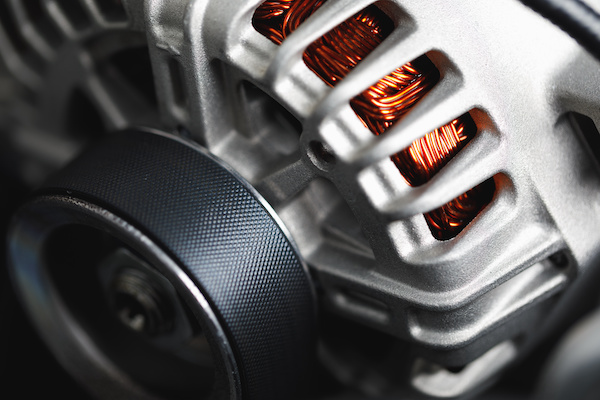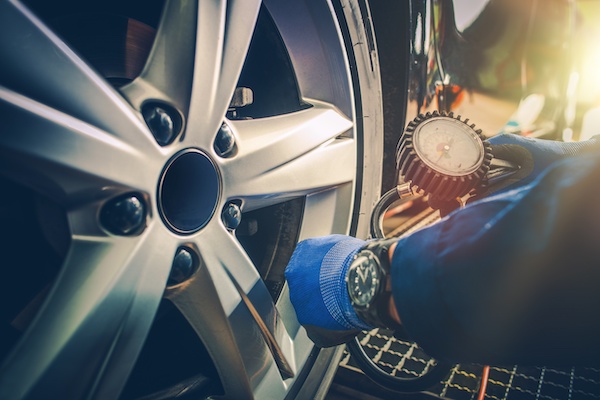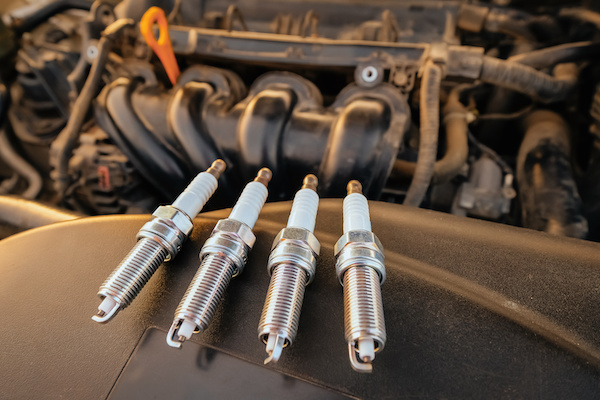Posted on 7/27/2022
.jpeg)
Is your driving style to blame for costly vehicle repair bills and excessive fuel consumption? Unfortunately, poor driving habits can wreak havoc with your vehicle, as well as result in very low mpg. Read on to discover the bad driving practices that could be aging your car or truck prematurely, in addition to increasing its running costs. Misusing the brakes Frequent, heavy braking, or riding the brakes rather than using a lower gear when your vehicle is traveling down a hill both lead to faster brake pad wear. It may also mean that you're accelerating faster than you need to. Rapid acceleration doesn't just burn more fuel, it also increases engine stress, meaning malfunction (followed by a repair bill) is more likely. Choppy driving Fast acceleration followed by hard braking is an inefficient way of driving that burns fuel unnecessarily. It also results in a jerky driving experience that is uncomfortable for passengers. Smooth acceleration and gentle, sustained braking is ... read more
Posted on 6/27/2022

There's no bigger headache than a car that won't start. Unfortunately, this can be a symptom of a failing alternator or battery. If your car is having issues starting, it's important to diagnose the issue and bring your car in for repairs. Luckily, there are some telltale symptoms of a faulty alternator that you can look for. Signs Your Alternator Is Failing Dead battery — when your car's battery is dead, it can look like your alternator is failing. The key difference is that the battery starts your car, while the alternator keeps the battery running. To figure out if it is the battery or alternator that is failing, you can jumpstart your car. If the car continues running, your battery needs replaced. If the car dies shortly after, then the alternator is failing. The car dies because it isn't producing enough power to keep the battery running. Dashboard warning light — If the battery warning light in your car is lit up, there could be an issue in the ... read more
Posted on 5/26/2022

Checking your car tire pressure is one of the most important things to do before driving off. This is because the wrong pressure in tires could lead to your car tires wearing more than usual. The are two main tools needed in order to check your car tire pressure tire pressure gauge air compressor Tire pressure gauge A tire pressure gauge is also known as a pencil gauge, this tool can help you check your tire pressure and it is very affordable. Another type of pressure gauge is known as a digital gauge and it's a good choice as it is simple to read. Other pressure gauges are analogue and digital, they work by being attached to an air pressure compressor hose which allows you to not only check the pressure of your tires but also inflate your car tires at the same time. Air compressor You'll usually find air compressors at gas stations. You could also get yourself a portable air compressor that can be plugged into the 12-volt auxiliary power outlet. However with this one you ... read more
Posted on 4/27/2022

Your spark plugs are what help keep your vehicle's motions in check. Spark plugs have a main function, and that is to keep your engine running smoothly and efficiently. Spark plugs are made to ignite the air and to blend the fuel within your combustion chamber. They do this in order to take the burden off of the engine so that it can do the simple task of starting up and running your car. Plus, a good set of spark plugs should be able to protect your combustion chamber from harm by directing heat away from it by bringing it into a water cylinder for cooling. In short, spark plugs may be small but their mission is big. But like any other car parts, these tough little guys can wear out over time. Corrosion, wear and tear impact even the best set of spark plugs and can cause major issues for your car down the road. So what are the signs of spark plug failure? The first one is when you start to notice a rattling sensation during idling. Your car starts to vibrate and shake when you ... read more
Posted on 3/28/2022

Cars are obviously noisy because they're these big metal machines, but not all of the noises you hear are signs that your vehicle is running in smooth condition. Here are some of the sounds you should be listening for in case something is wrong with your car. Emergent Noises Not every sound your car makes is an emergency, but you should still pay attention because some things do need to be looked at immediately. If you hear hissing under the hood, it may mean that something is leaking. Also, if you hear a humming or a whining noise, it could be an issue with your transmission and you may want to get a professional opinion relatively quickly. Non-Emergent Noises You may not need your car looked at right away every time, but it's still a good idea to be familiar with the sounds your car can make. Squealing when you brake is a pretty common one that may mean your brake pads need to be replaced soon. As long as you don't hear a grinding noise, though, it's not an emerge ... read more